Knowing how to discover your strengths and figure out what you’re good at are key elements to finding the right career fit and maintaining that fit over time.
DISCOVER YOUR STRENGTHS
with LEADERSHIP CONSULTANT BEV WEISE
Today’s Guest
 Bev Weise: Leadership Talent Solutions
Bev Weise: Leadership Talent Solutions
Grad School: UCLA Anderson School of Management, Los Angeles, CA
College Major: History
College: UCLA in Los Angeles, CA
High School: Van Nuys High School in Van Nuys, CA
First Job Ever: Teaching piano lessons
Worst Job Ever: Managing a corporate ride-share program
How To Discover Your Strengths
Today’s guest, executive coach and leadership consultant Bev Weise, tells us that the happiest people are those who are working with their strengths. So often, people get on a career path without really knowing what they’re good at and what they like doing. Sometimes you can discover your strengths, get on the right career path and then get promoted at work to the point where you’re on a new career path that no longer fits with your strengths and interests! Bev Weise explains how to discover your strengths and deal with these issues in today’s video interview. SHARE your experiences with this topic in the COMMENTS!
For our Audio Podcast: Careers Out There on iTunes
TRANSCRIPT OF TODAY’S INTERVIEW
Guest Leadership Consultant and Executive Coach Bev Weise: Thanks so much Marc. Pleasure to be here.
Careers Out There Host Marc Luber: So tell us a little bit about first, what is a leadership consultant and an executive coach?
Guest Leadership Consultant and Executive Coach Bev Weise: Yeah. A leadership consultant works with companies to help them identify leaders for the future. Both working with current leaders and helping them achieve their challenges and also identifying what they call the leadership pipeline: who are those people lower down in the organization who have exhibited high performance and high potential for moving up the hierarchy if you will and moving up the organization. Companies often identify people early on and they try to give them a lot of development and experiences and special assignments to really get them up to speed so that when openings come up for higher levels of responsibility, they’ll have people in the organization ready to assume those roles.
Host Marc Luber: OK.
Guest Bev Weise: And with individuals, it’s helping people who are either in companies who want to try to navigate sometimes the politics – or navigate how they can, how they present themselves, executive presence, or help figure out their career path. And also career transitions. You know, “I’m not sure, I’ve been doing this for 8 years, I’m sort of not loving it, I’m not sure what to do next,” and kind of just helping them figure out their career transitions.
Host Marc Luber: OK, that’s great – because I’m sure a lot of our audience, if they’re not in school right now, that means they’re out in the working world, and they might be wondering, “maybe I’m not doin the right thing – maybe I should focus on something else – maybe my career isn’t what I thought it was goin to be when I was back in school.” So, I think you could shed a lot of light on this for these people who are watching. So talk to us about how you figure out – what is a strength?
Guest Bev Weise: What is a strength? It’s a good question. And you know, the funny thing about a strength is that it’s usually something you’re so good at that you don’t even consider a strength. You’ve totally overlooked it. So it’s things that come absolutely natural to you. Things that you’re drawn to, kind of intuitively. Things that you do where you get lost in the moment, you’re kind of in the zone, if you will. You’re doing something – you love it, you lose track – you look at your watch and say, “oh my god – I’ve been doing this for 4 hours”- you have no idea that time has passed and you just love it. Growth is involved. When you think about things that you love, you can’t read enough about it. You buy magazines about it, you read up on it, you talk to people, you’re just sort of intuitively interested in a certain thing and want to accumulate more knowledge and want to accumulate more skills in it just kind of again intuitively. Your gut just draws you there. And so those are the kinds of things that it’s so easy to overlook because you think everybody’s good at it. If you do something – if I’ve got a mechanic come to my house and I’ve got something broken and 1-2-3 they put something together, I’m in awe! And they go, “it’s no big deal,” and I’m thinking for me it’s a big big deal! So it’s those things that you take for granted that everybody has that really, the reality is, most people don’t have – it’s your unique thing – and somebody else has another unique talent of theirs.
Luber: Huh, that’s really cool. So when you’re talking to people at a company, do you find that a lot of times they really don’t realize what it is and they need someone to help bounce things back and forth?
Guest: Yeah. You know the shame of it is – they say that if you’re not spending 80% of your time of your workday working on doing things where you’re using your strengths, you’re not going to be so happy, you’re not going to be as productive. They say that working with your strengths is really the way to select a career. I mean, for me – selecting a career or changing careers, it’s almost there’s 2 parts of the equation: 1 part is, which I think is the hardest part, really looking internally and saying “What am I good at” and “what do I love doing?” And then the 2nd part of that is what is the market like right now? What are the growing industries? What are the growing fields? What type of industry do I want to be involved in? Do I love the entertainment world? Or maybe that’s just too glitzy for me and I want to work in a big accounting firm or something. Thinking about the kind of people you like hanging out with – in terms of the types of environments you want to be in and then apply those skills. So the skills are very, when you have strengths, those strengths are going to be very transferable. And it’s not so much where you work – you’ve got to decide the kind of place you want to work – but if you identify that you’re a strategic thinker and maybe you’re future focused and you can kind of see big picture kinds of things, and that happens to be one of your sets of strengths, that you could imagine would be worthwhile in almost any kind of organization in any kind of industry in any kind of enterprise – even if you’re an entrepreneur and starting your own business. It also helps you figure out, “well, I can’t do everything – I should be focusing at least 80% of my time on what I’m doing really well and the other stuff I need to either hire people” if you’re an entrepreneur – you know –“I can’t do the bookkeeping, I’m going to bring somebody in to do that for me – it’s not a good use of my time, I’m going to focus on what I do best.” And that’s where success – because what happens is you get stronger and stronger, you build more and more skills, so this idea about “I’ve got to work on my flat sides, I’ve got to work on things that I’m not good at,” it’s a poor way to choose a career in my thinking, and in a lot of research. If you’ve got something that’s going to be a derailer, which means something that’s going to really set you off track and not going to make you successful, then you’ve got to work on it. But if not, you should be working on things that you’re already doing well, volunteer for assignments where you can do more of it and get that kind of experience to really get a deep, deep knowledge and experience base that’s going to really catapult you to wherever you want to be getting to.
Luber: That’s great. Now what if someone’s young, they’re maybe within their first 6 or 7 years in the workplace and they’re, you know, there’s a lot of times – I wrote a post today about when you’re new in the workplace, there’s some real grunt work that you have to do and it feels like it’s not really embracing what you’re all about, but you know that you kind of have to do that to get to where you want to be. Since you’re not yet doing that stuff that you really feel is where you want to be, you might not even know, “what am I good at?” How do you kind of at that point get to the heart of “what can I really hone in on and grow?”
Guest: Yeah. I think that you’re right – a lot of times you’re paying your dues. But I think – there’s this 1 simple exercise that I often do with clients that I think is VERY helpful. And that is to think about a peak experience – maybe 2 or 3 that you’ve had. A peak experience is, I’ll use the experience again, when you’re in the zone. When you look back and you say, “god, I loved doing that – I was interacting with these people, I worked on this project, it was successful, I got to be creative, I got to do whatever”. Whatever it was that completely turned you on that made it stand out in your life. Now this could be when you were 13 years old, and in fact, I think it’s better to take different times in your life as separate, distinct events and talk about those moments where you really felt like is a peak experience in my life. And once you do that and even write it out, then I think you look for threads. You look for the commonalities across all the peak experiences. So you might notice each time that there could be something about maybe the artistic, creative eye. I like to use the example of photography. If somebody loves photography – people like it for different reasons. Some people will love the composition of it. Other people will like the venture of going and taking pictures of people and getting into conversations with them. Other people might like the dark room – I guess they still have dark rooms at this stage! But it’s different things that they like about it – so it’s not enough to say, “I love art” or “I love photography”. You want to get at specifically what is it about that that I like? And when you start asking yourself to be more specific – you know specifically what is it about that that I like so much and then drilling down even more – but what about that that was so exciting to you? At that point – if you keep doing that long enough – you will come to the core. And I guarantee you that that core will be consistent throughout your life. If not something that will easily go away that you were had a strength last week and this week it’s not so great. But I think the important thing about a strength is that you’ve got to love doing it. I mean you’ve gotta enjoy it. I mean there are people – and this is tricky when you’re planning a career – some people love what they do but they’re really bad at it. There are other people who are given special assignments because they’re so good at it, and I’m sure a lot of your audience might experience this. They’re given work because they’re efficient, they get it done and they hate it, and they’re given the work because they’re so good at it. So what you want to do is find a nexus of those 2 things where you love doing it AND you do it well. That’s really the key – you want to find both of those things.
Luber: You know, it’s interesting that you say that. I had dinner the other night with a friend who is running a division of a company – he’s running their LA office. And so much of his time is spent managing people. He’s paid very well to do it – and it’s an exciting job. But for him, he doesn’t feel that he’s hands on any more. He feels that he’s delegating to everyone else and watching over them and spending so much time managing people instead of doing the creative work that he really signed on for in the first place. But if he goes – and we were talking about what would are you going to do next – and he said, “maybe I’d go into a place and be more of their hands-on creative person” and I said, “won’t that be a huge step down in pay and responsibility” and he said, “actually it will”. And so it was that interesting thing of “Well, I’m doing well – my strengths are here and they’re working, but I’m not enjoying it anymore and I know I’ll enjoy THAT.”
Guest: Yeah, I mean, that’s often what happens. When somebody is really good at what they do, they keep getting promoted and promoted until the position is very different! As you move up in an organization, you’re doing less of the actual work that made you successful in the first place, and chances are you’re doing more managing, you’re doing larger, more kind of strategic kinds of things, and you’re not doing the work itself. I know somebody who is a social worker who loves being a social worker. And he got a promotion and now he’s managing – he’s a supervisor of social workers- and he hates it! And he ended up taking a lateral move – he ended up being smart and negotiating the same salary – but he said, “I don’t want to be a supervisor – I’m senior enough now, you know I can do the work, and I just do a better job and I love what I do.” So he has decided to do that. I’ve got another story of somebody who I know wanted to be a doctor. He went to UCLA undergrad, got a 4.gazillion average and he ended up was pre-med his entire life, applied to medical schools, got accepted to 9 medical schools, which is no minor fete, and the top top medical schools. As he went to visit them all, he said, “you know what – I just don’t want to be in a hospital environment, I think I really don’t want to be a doctor.” And this is after an entire life of planning on being a doctor! And when he got close to it, he realized it’s not what he wanted. And now he’s extremely happy as a financial analyst and a financial planner and doing very well and loving it. But he caught himself in time. I know that the Stanford folks were going to defer him – they said unless you’re 100% committed to this, this is too long of a road to go if you’re not passionately in love with what you’re doing. And I think all of us have to think about what are we really passionate about? A friend of mine, Bev Kane, who is a real guru on career development and has written many books – one of her books is called ”Up Is Not the Only Way” – it was one of her earlier books. The concept of to be successful you have to kind of redefine that. It’s not necessarily working your way up the hierarchy. It could be taking a lot of lateral moves. It’s moving where you’re challenged – as long as you’re growing, as long as your pay increases, as long as you feel like you’re really at your core of what you do well and love doing, I think you can’t go wrong. I mean I really think that there’s a lot of other ways – because a job really does change as you move up an organization. And some people might love it and other people like the person you talked about, can say, “this really isn’t for me”. And it’s not like a failure if you’re not taking these promotions , but that you’re looking for lateral moves as well.
Luber: Right. And life is too short to stick around at something that’s just not fun, right?
Guest: That’s for sure. That’s for sure.
Luber: I used to see that as a recruiter all the time – so often people are putting the fear of change before their need to really move on and connect with that right thing. So instead of shaking things up and making a move, they sit in that same place that’s torturing them.
Guest: Right. And what ends up happening is the plus side of getting laid off is I have a friend who was recently laid off who wanted to leave the organization for the last 14 years but she was there 14 years so I’d say maybe the last 4 years she knew she was done . And it wasn’t until she got laid off where she immediately found, miraculously, another job. She’s extremely happy with it and needed that kick out the door to really make the move. But it’s kind of a shame because I know if that wouldn’t have happened, and I know a lot of people in that situation, where you’re not loving it. You’re kind of just going to work every day – you’re not really in love with it but you end up going because you’re afraid. And then something happens where you’re forced to do it. And most people I know look back on that experience and say, “why didn’t I do this sooner?” So I think for young people to get in touch with the fact that they’re not loving what they’re doing and to pause and really spend some time looking internally. You know, “what do I really like doing” and think about it in terms of transferable skills and transferable strengths. When I moved, just as myself as an example, I worked for Northrop Gruman for 14 years and one of the things that I did was planning conferences for the CEO, these strategic leadership conferences. So I had a lot of experience with that background as well as the succession planning that I was doing. And when I moved on, it was to a job working with lawyers internationally. Now who would have thought from aerospace to lawyers?! What was the commonality? But I knew that I wanted something international and I wanted to use my same skills and so some of that conference planning and design was very helpful. And teamwork, starting teams getting going, these new practice groups that we started internationally, and I was able to transfer over almost seamlessly my experience at a large aerospace company for an international association of law firms. I mean, how different is that?!
Luber: Yeah, that’s great. That’s really cool!
Guest: So I think that you’ve gotta be very clear, though, what you love doing and what you do really well. There’s a book I could recommend too that is online – maybe I’ll hold up – Strengths Finders – I don’t get a commission for this – but Strengths Finders 2.0 by Tom Rath – it’s based on some research by Gallup Polls. And I have to say, everyone I know who uses this -= other coaches -= were all surprised at how accurate it is. It’s online – it’s less than $20 on Amazon I think -and you can take a test online. And it’s based on, I think it’s 40 strengths that have been identified by the Gallup Poll, who are the people who do all these kind of pollsters, and it’s internationally based, and at the end you come up with 5 strengths that you could really identify and they give you ways of developing that more and if you’re overusing your strength, the kind of things to watch out for. And I think it’s a helpful way to begin looking getting a different perspective on what you do well. Another suggestion I have is to talk to people. Go to past employers – go to people who’ve worked with you on projects. Say “I’m trying to think about my next move and if you had to describe me in a few words”, what stands out about you –“if you had to say what are my strengths” – to get feedback on that, I mean – because a lot of times we don’t give ourselves enough credit for things that we do really well. And when you start hearing a consistent message from a lot of people, it means you’re pretty well branded that you’re doing that pretty well and that you have to consider now that you know it’s recognized by other people, then you have to start thinking about “and do I like doing that”? And if you do, that’s a golden opportunity to figure out – “make sure that any job I have has that in it” and if you have a job right now and you’re not using that, think about assignments you can get, think about projects that you can do that would really show off those strengths and that you could build on them more and develop them even more.
Luber: And that’s great – really good advice. When you say to go to the employer and talk about your potential next move, I’m assuming you mean within that company – within that organization?
Guest: Yeah. I mean it would be, just to get the feedback, I think it’s good to go to past employers if you’re on good terms with them and saying “look I’m doing some research and I’m doing some career development for myself and I’d really like to get your views on what are those things that you think – I’m trying to focus on my strengths – and can you give me your feedback on what did you see are some of the things that I tend to stand out in and where you think some of my strengths lie”. Ask a spouse. Ask friends. Ask family. And look for the common themes that people keep telling you and see if that resonates with your own experience.
Luber: Excellent. This is excellent adv ice for everybody. For anybody who wants to reach you, to contact you for your consulting services, what’s the best way for that to happen?
Guest: Well, they can look at me on the web. Www.leadershiptalentsolutions.com, my contact information is there and I’d be happy to talk to anybody who just wants to see what’s next for them and how to move forward.
Luber: Excellent. Everybody, as always, real advice from real professionals like Bev Weise here. Bev thanks so much for joining us today. Everybody we’d love to have your feedback. Please share your feedback in the comments section on the site. What did we cover well, what would you like to know more about, let us know and I’m sure we’ll be having Bev back in the future. Bev thanks again for joining us.
Guest: Thank you marc. I enjoyed it.
Luber: Thanks for watching everyone. I’m Marc Luber and look forward to seeing you again soon.
(C) 2010 Careers Out There
Related Posts You Might Like
Leadership Development Consulting Careers (Interview)
Finding the Right Career Fit | Choosing A College Major
Job Interviewing Tips: Focus On What You Bring To the Table



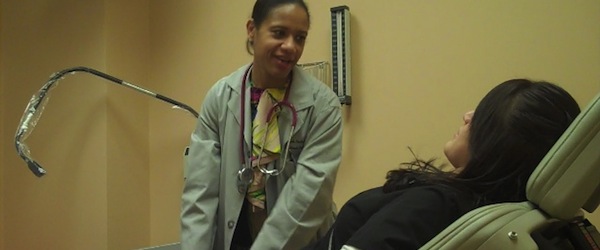
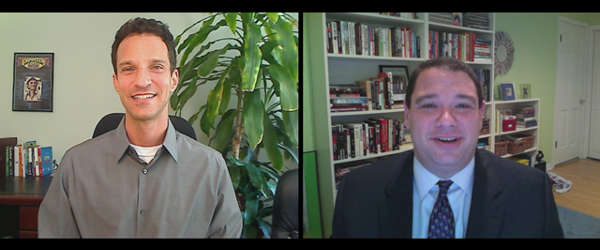
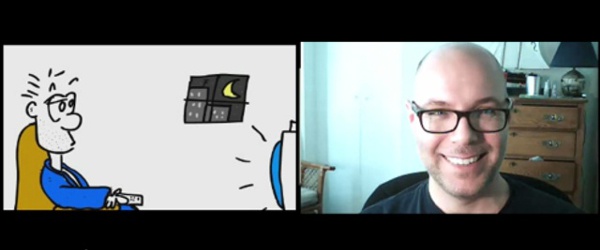
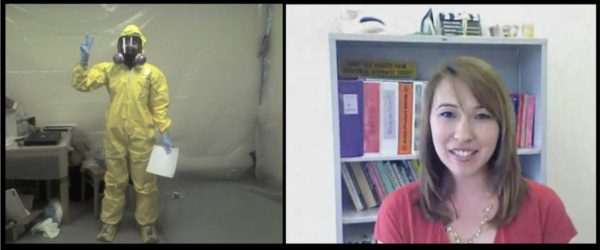
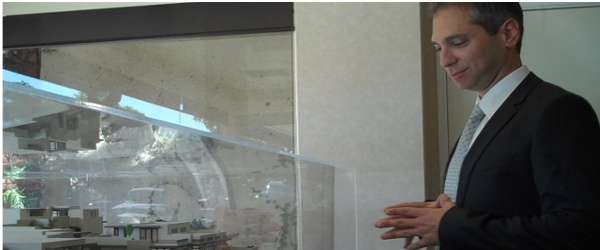
Thanks so much, This has been so insightful, I am going to be looking deep within myself to discover my strengths and work with that to live my life to the fullest
Sounds good – thanks for the feedback @Ndisi:disqus.